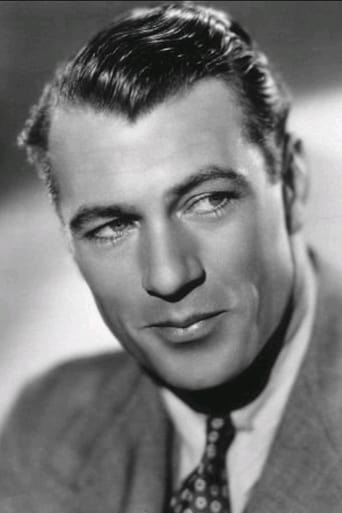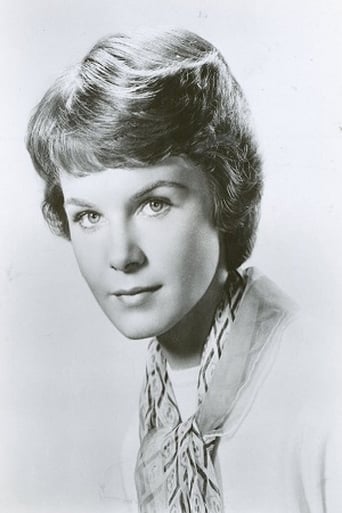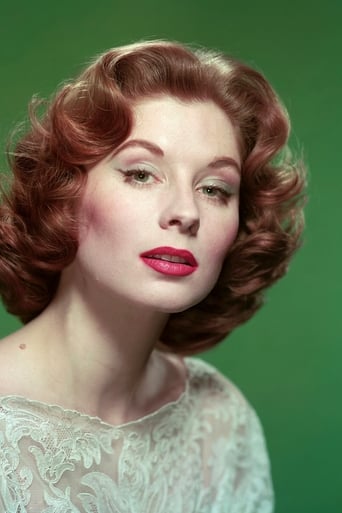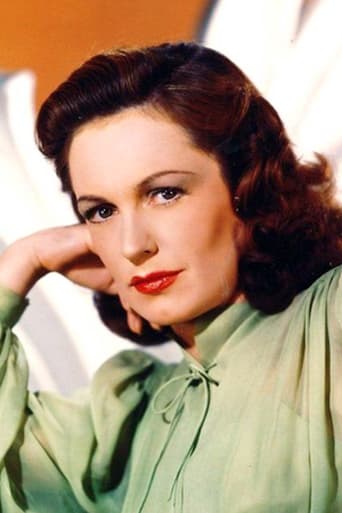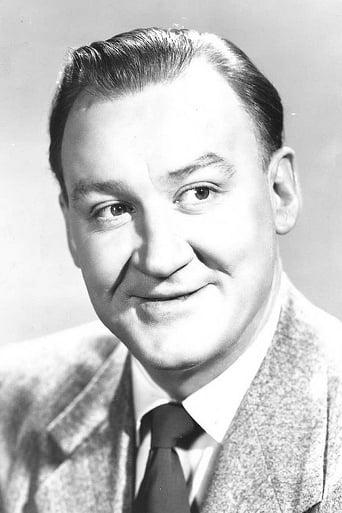Mjeteconer
Just perfect...
Siflutter
It's easily one of the freshest, sharpest and most enjoyable films of this year.
Kaelan Mccaffrey
Like the great film, it's made with a great deal of visible affection both in front of and behind the camera.
Fleur
Actress is magnificent and exudes a hypnotic screen presence in this affecting drama.
JohnHowardReid
Producer: Charles Brackett. Copyright 1958 by 20th Century-Fox Film Corp. New York opening at the Paramount: 22 May 1958. U.S. release: May 1958. U.K. release: 29 June 1958. Australian release: 11 September 1958. 9,158 feet. 102 minutes.SYNOPSIS: It is 1945 and Joe Chapin is dead. At the funeral reception in his home at 10 North Frederick in Gibbsville, Pennsylvania, his daughter Ann recalls the last five years of his life ... Goaded by an ambitious wife, Edith, who aspires to be the First Lady in Washington, Joe throws his hat in the political ring by offering a one-hundred-thousand dollar bribe to political boss Mike Slattery. At about this time, Ann meets trumpet player Charlie Bongiorno. When she falls in love, becomes pregnant, marries and then has a miscarriage, Joe protects his career by "buying off" Charlie and having the marriage annulled. Heart-broken, Ann leaves home for a book-store job in New York. Double-crossed by Slattery, Joe fails to get the nomination for lieutenant governor.COMMENT: A well-acted, but rather turgid and slow-moving melodrama. Director Dunne seems determined that not a word of his deathless dialogue be lost. Every word is meticulously enunciated — a stratagem guaranteed not to improve an already funereal pace. In other respects, unfortunately, Mr. Dunne is less scrupulous. He makes no attempts even to utilize the scope of the CinemaScope screen, let alone spice up the anti-heroics with dramatic and powerful compositions or imaginative camera placement and movement. His direction, in short, is stolidly uninteresting.Gary Cooper, Geraldine Fitzgerald and company fight a valiant but losing battle to keep the film alive for 102 way-overdue minutes.
Edgar Soberon Torchia
Pennsylvania is at the heart of the story of "Ten North Frederick," a movie directed by Philippe Dunne, a filmmaker who mostly worked for Twentieth Century-Fox, where he signed the screenplays of classics such as "Magnificent Obsession", "The Last of the Mohicans", "Suez", "How Green Was My Valley", " Forever Amber" and "The Robe". In 1955 he began directing films and although he did not do great works among the 10 films he made, some are more than acceptable, like "Wild in the Country", one of Elvis Presley's best films; the much appreciated melodrama "The Inspector" with Stephen Boyd and Dolores Hart, or the funny spy comedy "Blindfold" with Rock Hudson and Claudia Cardinale. However, "Ten North Frederick" exceeded my expectations. Filmed in black and white Cinemascope, it is based on a novel by the controversial John O'Hara, described as an irascible Pennsylvania social climber, who could not have a college career at Yale as he wished, when his father unexpectedly died. These facts allowed him to be a keen observer of class differences, which are dramatically expressed in the plot of the film, set in the fictional town of Gibbsville, which O'Hara used several times as the location of his stories. The movie opens with the post-funeral reunion in the mansion of a Gibbsville patriarch named Joe Chapin (Gary Cooper). So it begins a retrospective account of his life: at the age of 50, Chapin's professional plans collapse. His aspirations in the upcoming elections are betrayed by his "image maker" and by the local politicians, but the drama inside his house on 10 North Frederick street is even worse. His upstart wife Edith (Geraldine Fitzgerald) scorns him, she has thwarted their son Joby's (Ray Stricklin) desire of entering Juilliard School to study music, and she is partially responsible of the abortion of their eldest daughter Ann (Diane Varsi) and the breaking of her marriage to a trumpeter of Italian origin (Stuart Whitman). While watching the film, which does not evade dramatic special effects (a great storm lashes Gibbsville during the night of the rupture and the abortion) or Leigh Harline's musical bursts in the most classic melodramatic style, I remembered all the relationships I have seen truncated by differences of class, the prejudices against many who have wanted to study art, the agreements between corrupt politicians who have been discovered but remain in power, or castrating mothers who emotionally destroy their families... But in the final half hour of the film, the story made a sudden turn when Chapin travels to New York to take a break, and looks for his daughter Ann, who has separated from the family. Arriving at her address, he knocks on the door and who opens it is his daughter's roommate, the beautiful Kate Drummond (Suzy Parker). And then a tender love affair surges, but fleetingly, just as a preamble to his final days. In this last movement, the story is honest and Chapin, in a very lucid reflection on old age, says goodbye to Kate: there is no turning back, the deterioration of the man is eminent, the retrospective narration concludes and we return to the present, to the score settling with Mama Chapin. "Ten North Frederick" is perhaps the best kept secret of Dunne's career. Maybe his best film. Discovering it was a very enjoyable experience, as well as watching Gary Cooper once again, one of the greatest actors that the United States has given to cinema, accompanied by a prominent cast.
writers_reign
This is by far the best of the four novels by John O'Hara that have so far been adapted for the big screen (Pal Joey was a volume of short stories - and contrary to what one reviewer states here, O'Hara wrote Ten North Frederick in 1955 and won the National Book Award in 1956 whilst the film of Pal Joey was released in 1957; Chronologically in terms of publication the four novels were Butterfield 8, A Rage To Live, Ten North Frederick and From The Terrace. Although cutting it dramatically - the novel covers the entire life of the protagonist, the film merely the last five years - writer/director Philip Dunne has wisely retained a great deal of O'Hara's dialogue. I've never been a huge admirer of Gary Cooper but he is ideal casting as Joe Chapin, decency personified, whilst it would be hard to improve on Geraldine Fitzgerald as the wife/mother from hell. Cas support several viewings.
JLew3500
This love story reaches out and touches the heart like no other movie has been able to do in years of movie-making. It's tear-jerking capability is what I've been searching for in movies of this kind. The cast is so wonderfully suited for this film. As you watch, you begin to wonder if Gary Cooper hadn't been born, who could possibly have played this wonderfully passionate older man. My belief - no one! I can't urge movie lovers enough to buy, rent, or whatever one must do in order to view this movie.And, a note to the so called Classic Movie Channels - Where in the hell has this movie been? Please, let's allow the public to view this touching story and be able to comment for all to read.
